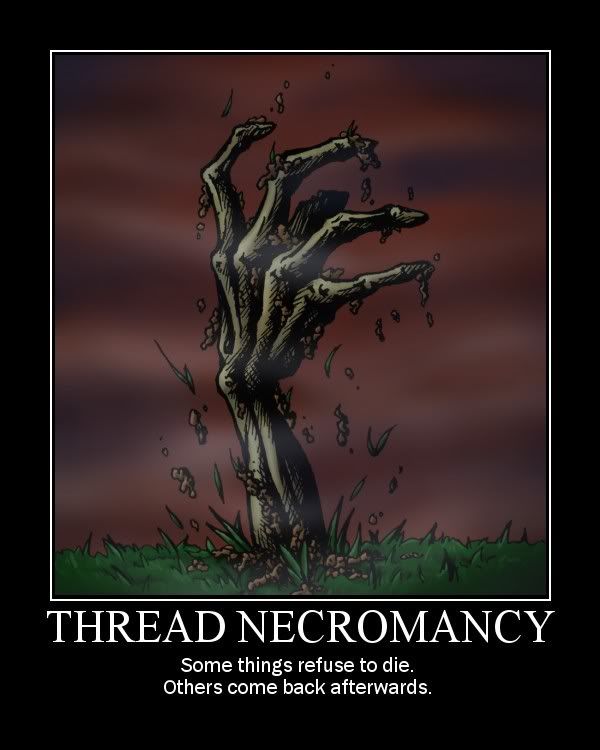You are using an out of date browser. It may not display this or other websites correctly.
You should upgrade or use an alternative browser.
You should upgrade or use an alternative browser.
Dawn of the Punic Sea [DoC]
- Thread starter Tomorrow's Dawn
- Start date
Princeof Persia
Emperor
Agreed. Good job so far.
In this universe, the first Rome was the Capital of Julius Ceasar. The third was the capital of his third major civ. I therefore conclude that Mecca was the second Rome since Arabia was Ceasar second major try to bring down Phoenicia.
Princeof Persia
Emperor
In this universe, the first Rome was the Capital of Julius Ceasar. The third was the capital of his third major civ. I therefore conclude that Mecca was the second Rome since Arabia was Ceasar second major try to bring down Phoenicia.
*Caesar.
mrrandomplayer
Hopeless Situation Warrior
Is this story dead, or what?
constantinople
not Istanbul
Tomorrow's Dawn
Heroes Never Die
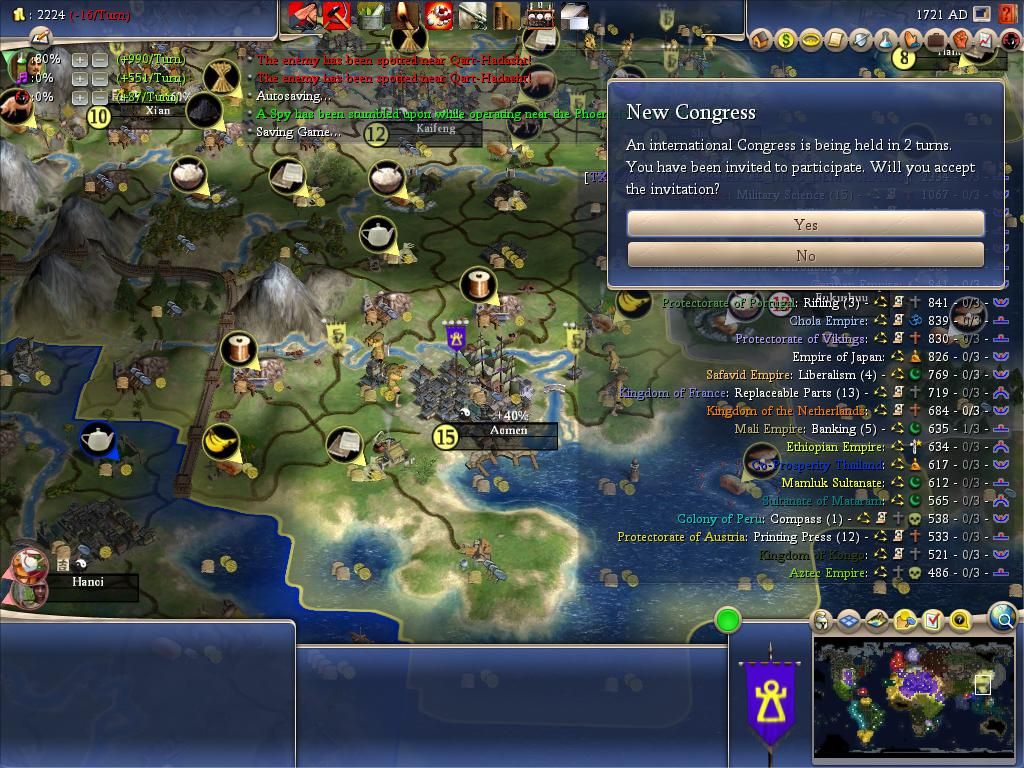
It was the same each time.
Nothing more than an over-glorified dog and pony show.
Hannibal watched from afar as his nation's Senators and Representatives took
their seats, directly opposite from those of Caesar's puppet nations.
He had his chips down though. He had this game won before it ever began.

The first blood was drawn as the Phoenicians backed the transfer
of the Third Roman city of St. Petersburg to the Germans.
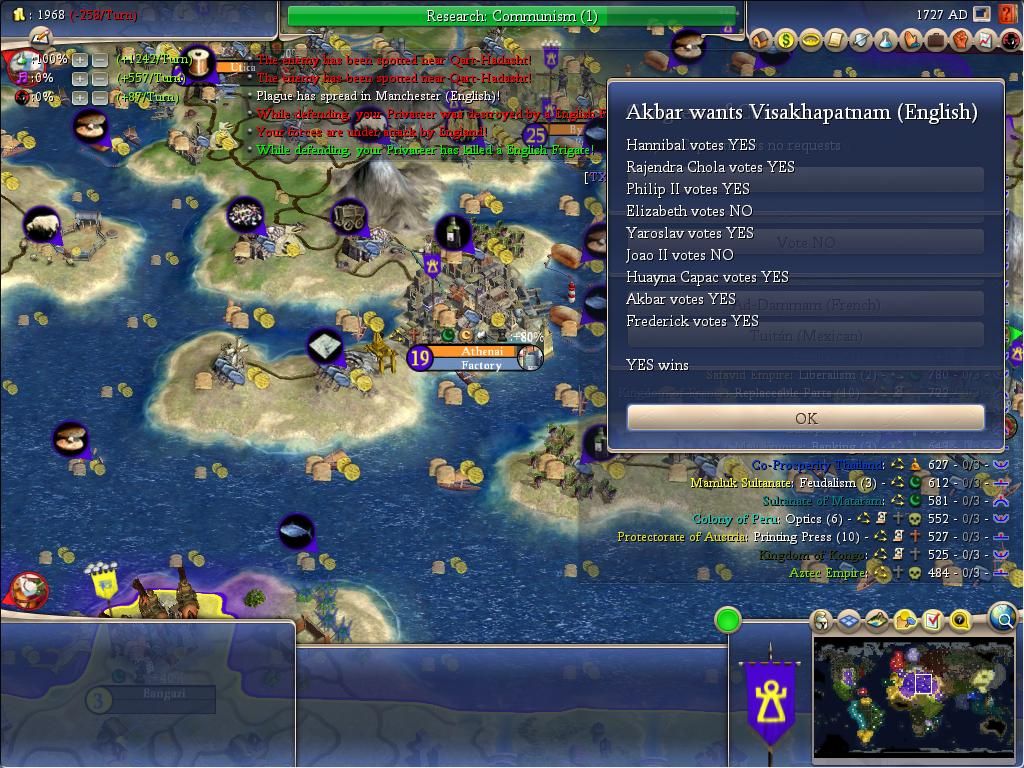
Hannibal had been watching Britain with curiosity for some time.
The island nation declined to pick a side in the cold conflict between
Phoenicia and the Third Rome, but it was growing too fast and too hard
to be ignored. Well. Couldn't sit idly by now, could you?
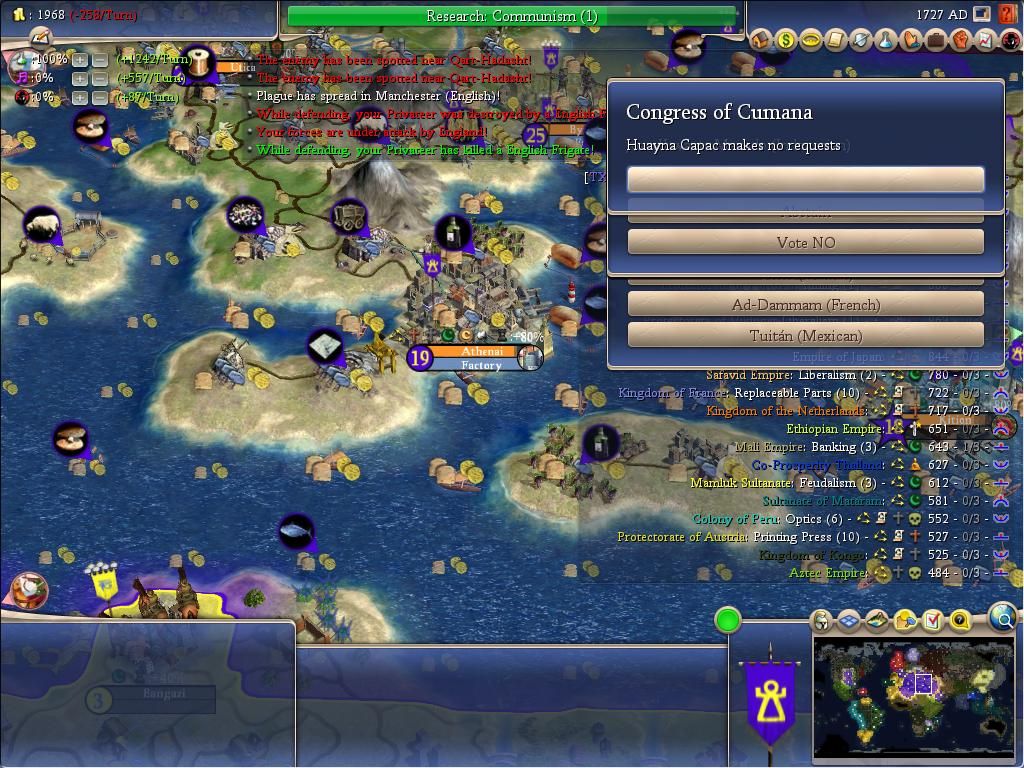
Not all went as planned.
Incan representatives of the Greater Phoenician nation declined to make a claim on any land that would benefit the republic.
Hannibal suspected someone had been paid off to at least try to remain inconspicuous.
That was fine. He kept contingency plans ready.
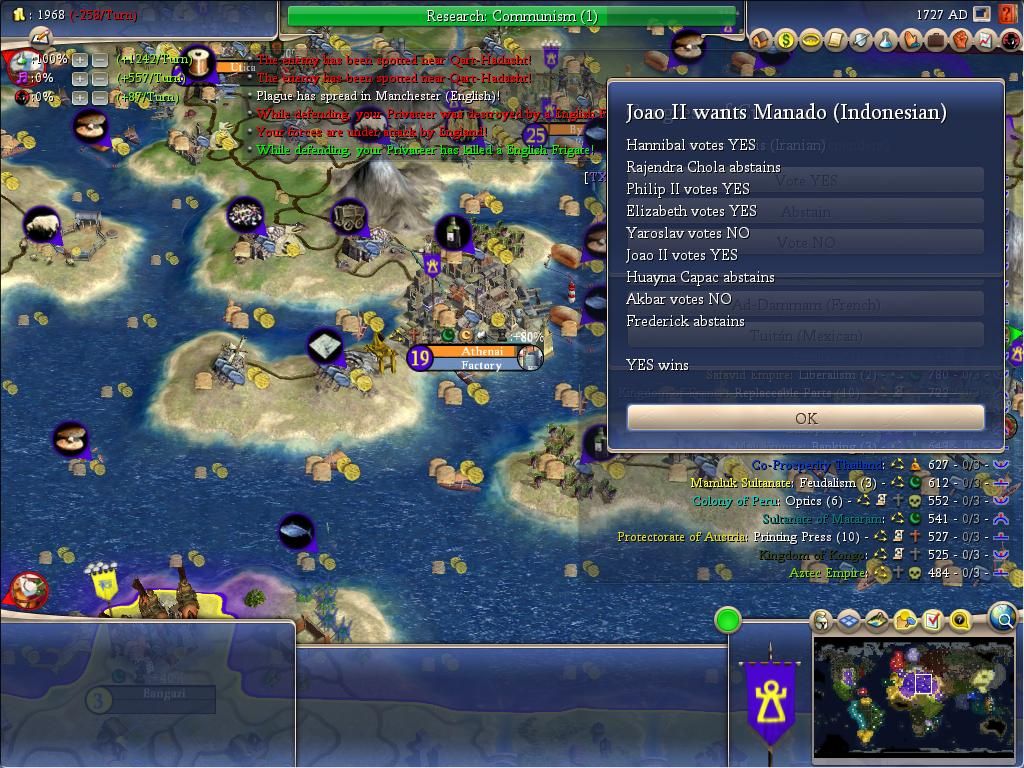
As the Punic Sea swayed Manado over to its immaculate shores.
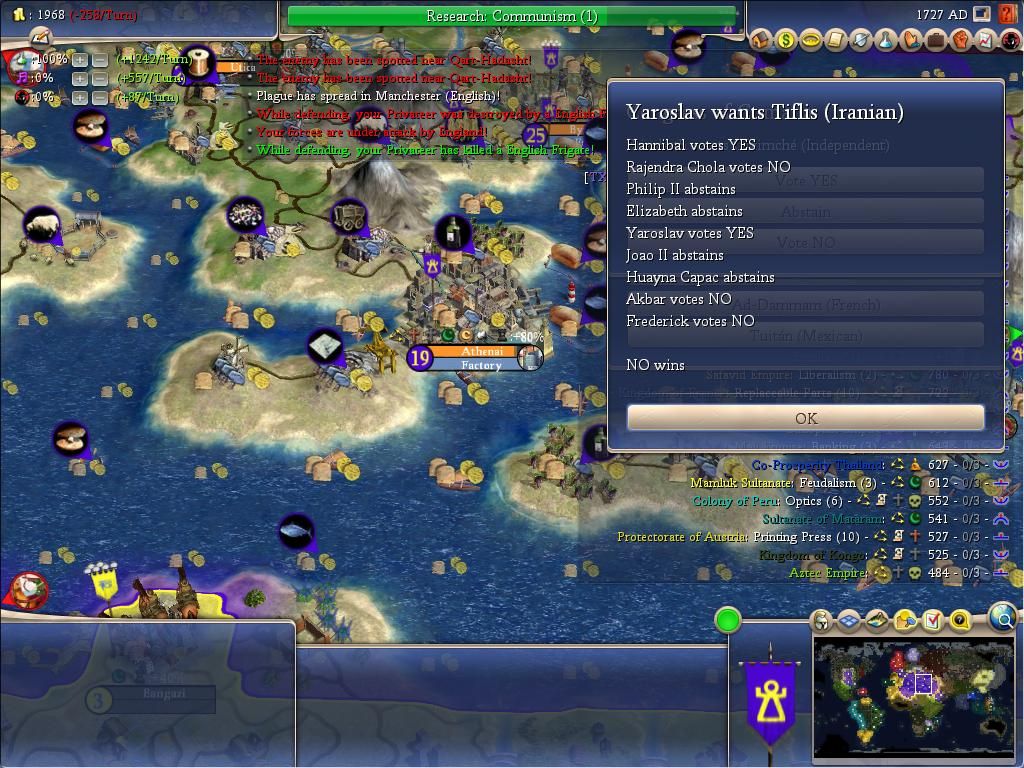
The next proposal was shot down so quickly, it shocked the Third Roman representatives at how unanimous it was.
To add insult to injury, Hannibal prepared for Phoenician support of the Third Roman claim, making Casear's statesmen quiver with humiliation.
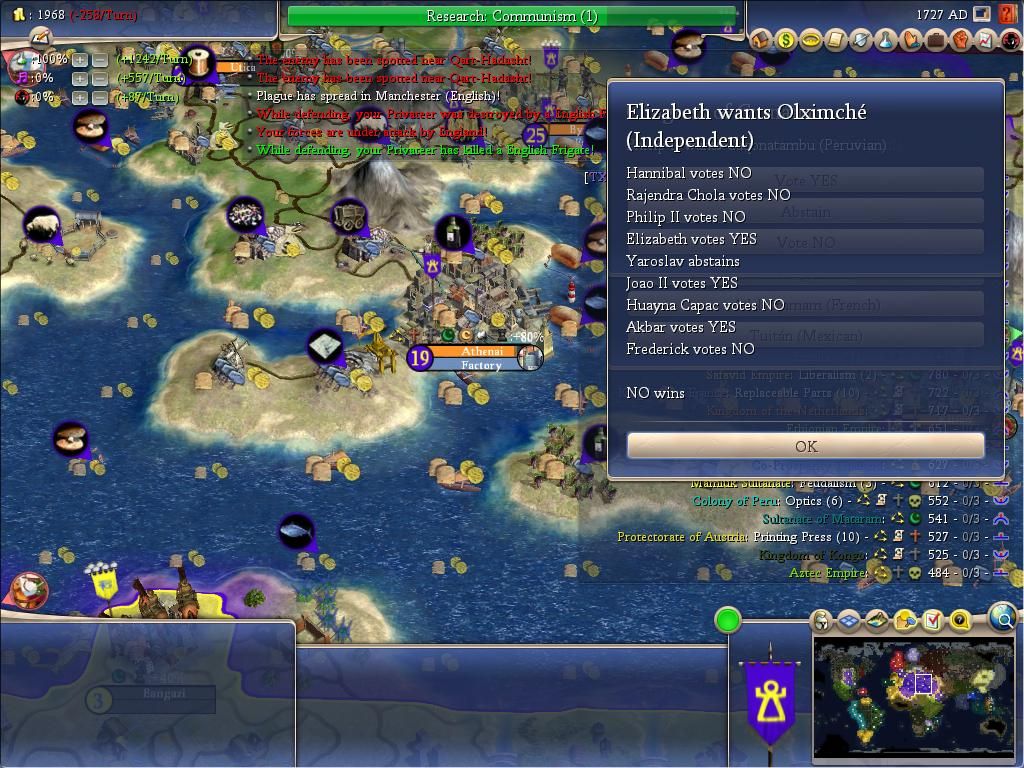
Keeping the rising wildcard in check,
Phoenicia successfully denied Britain its colonial ambitions,
if only for a moment.

In a moment of oversight, the Spanish were fooled into making a claim on their fellow Phoenician member nation, the Inca.
Fortuitously, the claim did not come to pass, but Hannibal felt weakness for a short moment, if only because he hadn't anticipated this.
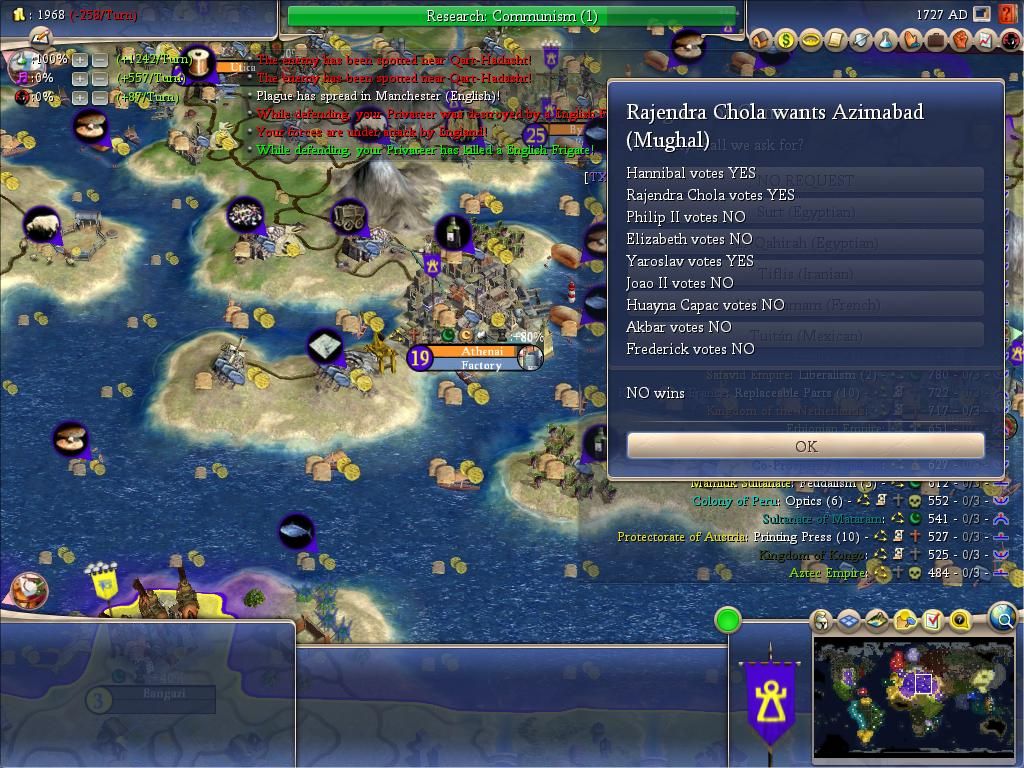
Just dividing and conquering at play here.
The Indian subcontinent after all, was one to watch.
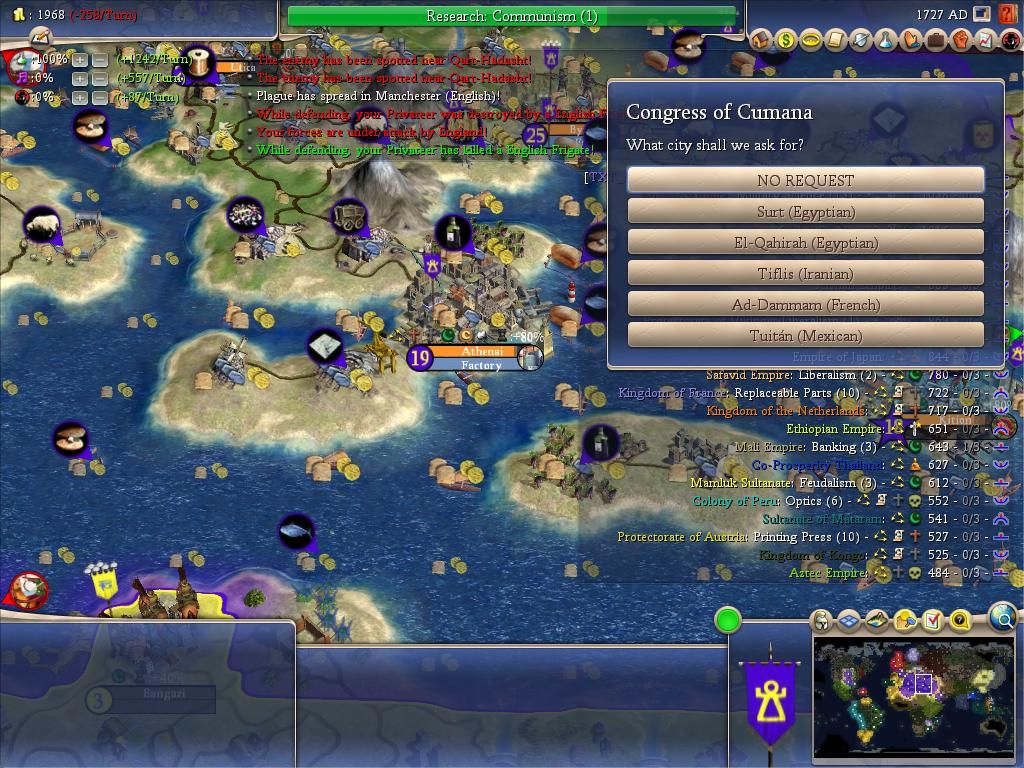
Phoenicia proper, as Hannibal had orchestrated with his strings,
feigned the good man, and declined to claim a city.
The populace may not know any better, but the Immortals
ruling from behind the scenes and atop the thrones of foreign nations knew better.
constantinople
not Istanbul
I was the one who said "It was," as in the story came back to life. I deserve 99.999999999% of the credit.
jk lol
jk lol
mrrandomplayer
Hopeless Situation Warrior
My only magic is Magic the Gathering. But it's BACK NOW!
- Joined
- Apr 4, 2010
- Messages
- 8,873
Tomorrow's Dawn
Heroes Never Die
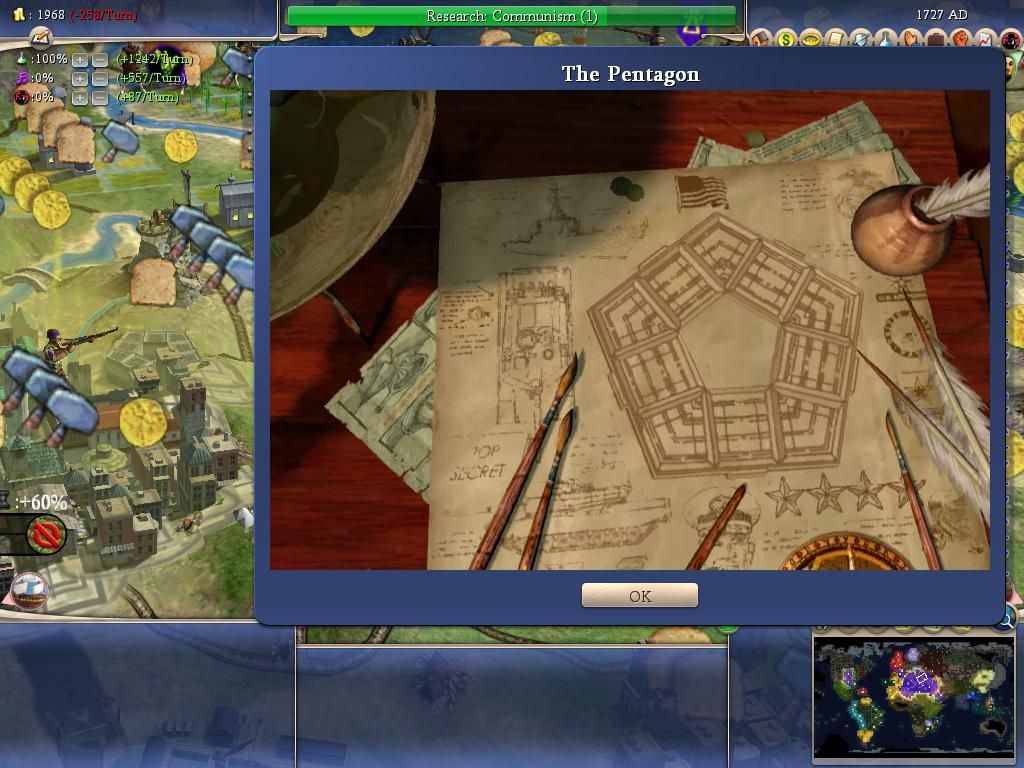
Divorce.
This wasn't how Hannibal had imagined his second marriage would end.
The Baalists did not believe in divorce, and neither did Isabella.
Joining a Baalist nunnery was simply her way of abusing the loopholes.
The latter decades of their marriage were getting well worn anyway,
for his spies reported back to him that she was engaged in illicit behaviors with the Baalist priests in the Monasteries when the lights were dim.
He had a right mind to sack all the temples of the faith he helped found.
To be made a ****old by the Church!
But one of his contacts let him in on something.
Some of the priests were discovered to be connected to Russia.
His rage would have been insurmountable had this fact not come to light.
But he stopped and let it cool, forming a solid-state of hatred.
He would sit on it. He would wait.
Phillip, a new Spanish Immortal was charged with the leadership of the Spaniards as Isabella retreated from civic duty.
An aspiring young man who rose quickly through the ranks of Phoenician civil service, he was seen as a shining beacon of Phoenician Spain and one of the best hopes for the future.
The young man was accompanying Hannibal as they supervised the construction of an elaborate office structure.
Phillip had heard the rumors, and even though Hannibal was retired, he knew better than to step on the older man's toes, for his influence was vast and far-reaching.
The tension was so thick that one could cut it with a knife.
Soon, Hannibal broke the silence.
"You might be wondering what this is for.
There are enemies in the world that would wish for the destruction of all that Phoenician civilization has accomplished and they will stop at nothing.
Trust me. I've lived long enough to know. I've seen all my enemies wither before me, watched their convictions falter. But they never stop, the ones who rise up perpetually in opposition.
The Russians have a favorite saying, passed down to them from Caesar himself.
"Cathargo delenda est." It means "Carthage must be destroyed."
From the day he looked out across the sea and gazed upon my shining cities,
he has thought this to himself, and gathered peoples from all corners of the world to its creed.
Phoenicia is proof that there are some things that can last forever.
And Rome is proof that there will always be adversity.
Remember that you lead an integral part of the Phoenician family, Phillip,
and should I, or Phoenicia ever fall, you will be one of the heirs to my legacy."
Hannibal left the young Immortal to ponder that thought.
While he still looked the same as he did a thousand years ago,
he truly felt weary and old, longing for better times, when Cleopatra was still by his side.

A look at my stability.
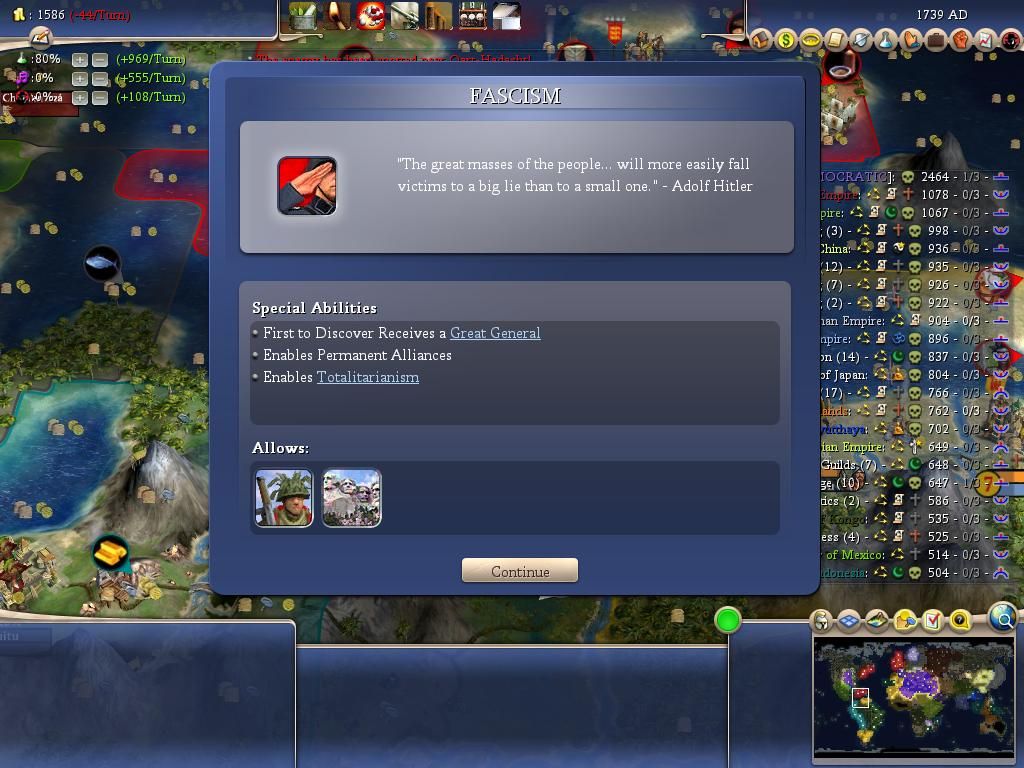
Hannibal had always had a cult of personality but it was starting to grow bigger by the day,
in response to increasingly poor performance from elected Phoenician officials.
Faith in their mortal leaders was eroding and the people wanted to bring Phoenicia back to glory when it was under Hannibal.
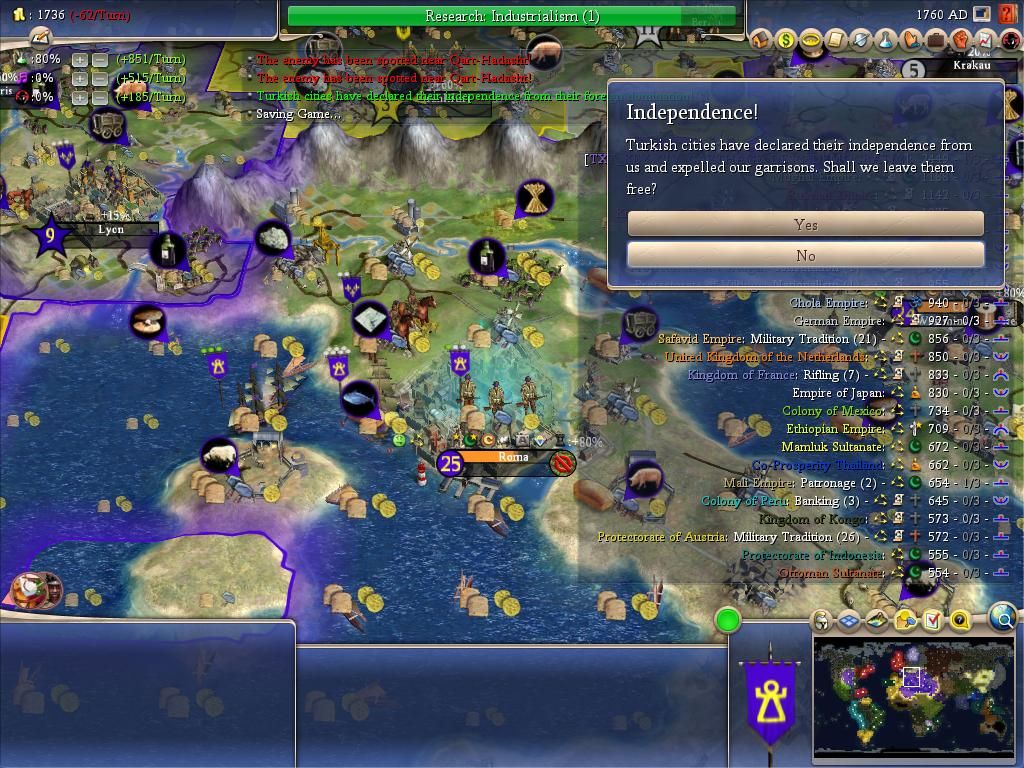
The Crisis of 1760 exacerbated the situation as Turkish insurgents
seized the city of Constantinople without warning and held its inhabitants hostage.
For such a dire occurrence to happen in the middle of the developed and peaceful Punic Sea was unthinkable.
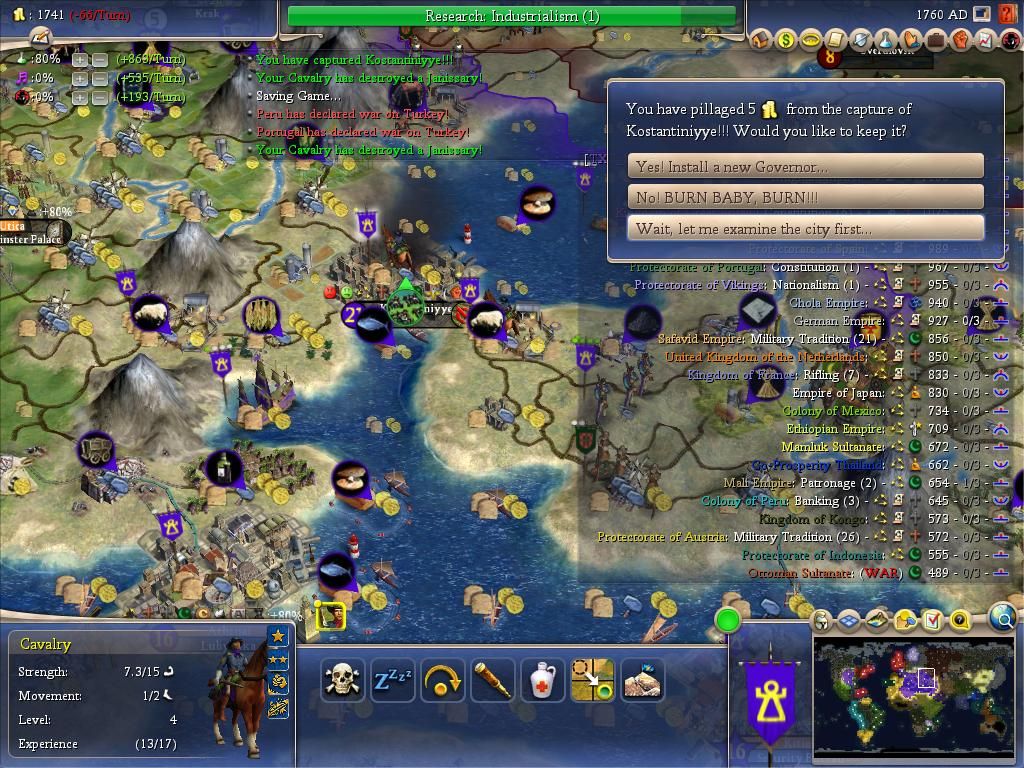
When the military rode in and crushed the insurgent army, the damage had already been done.
Phoenicians would have expected this kind of chaos in the warzones between the Tamils & British in South India
or the warlord territories of former Mongolia but not here, not in the body of the Punic Sea.
Hundreds of buildings and businesses were destroyed although thankfully,
the Wonders that had made Constantinople great had remained intact.
But the people were angry. And they lynched members of their municipal government, believing them unfit for office.
Order had broken down in Constantinople and rioting and looting was the norm.
The military could only hold a few districts of the city before reinforcements arrived.
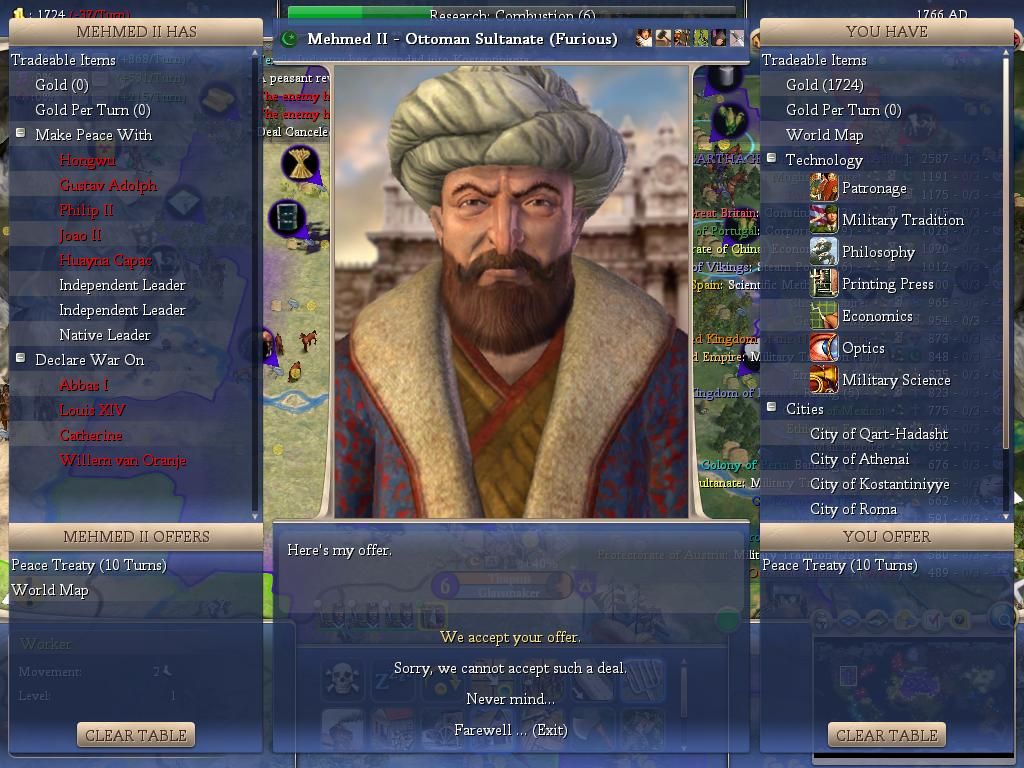
The Turks and the Phoenicians signed a ceasefire after the liberation of Constantinople.
Citizens were loathe to let the insurgents go but the troops were needed to restore order.
The insurgent leaders took their people into the Caucasus thereafter and a new state was set up in the region.
Although Phoenicia and its body of nations refused to recognize it, it received support from Russia, Japan & Aztlan among others.
The new Turkish capital's proximity to the Third Rome led many ordinary citizens to suspect that Caesar had a hand in formenting this crisis.
GreekAnalyzer
Back from the Dead
- Joined
- May 9, 2013
- Messages
- 1,936
Awesome! MORE!!!!!
Also, 100th post!!!!

Also, 100th post!!!!


Tomorrow's Dawn
Heroes Never Die
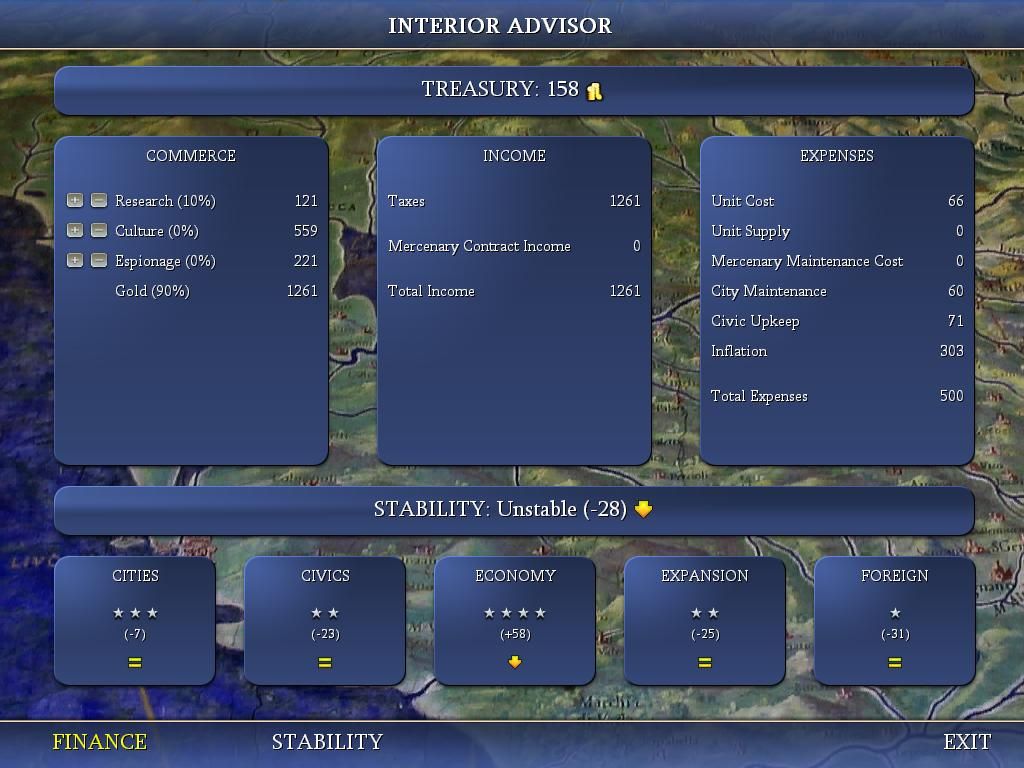
At long last, with the Constantinople incident, the Phoenician nation
tired of their ineffectual leaders and the inept Phoenician intelligence service.
They deserved better. They deserved not having to fear Roman plots
at every turn and corner. So they ousted their representatives.
Democracy was dead.
And it was thus, that Hannibal came out of retirement to
lead the nation once more, as its immortal dictator.
After all, he still had a bone to pick with Caesar.
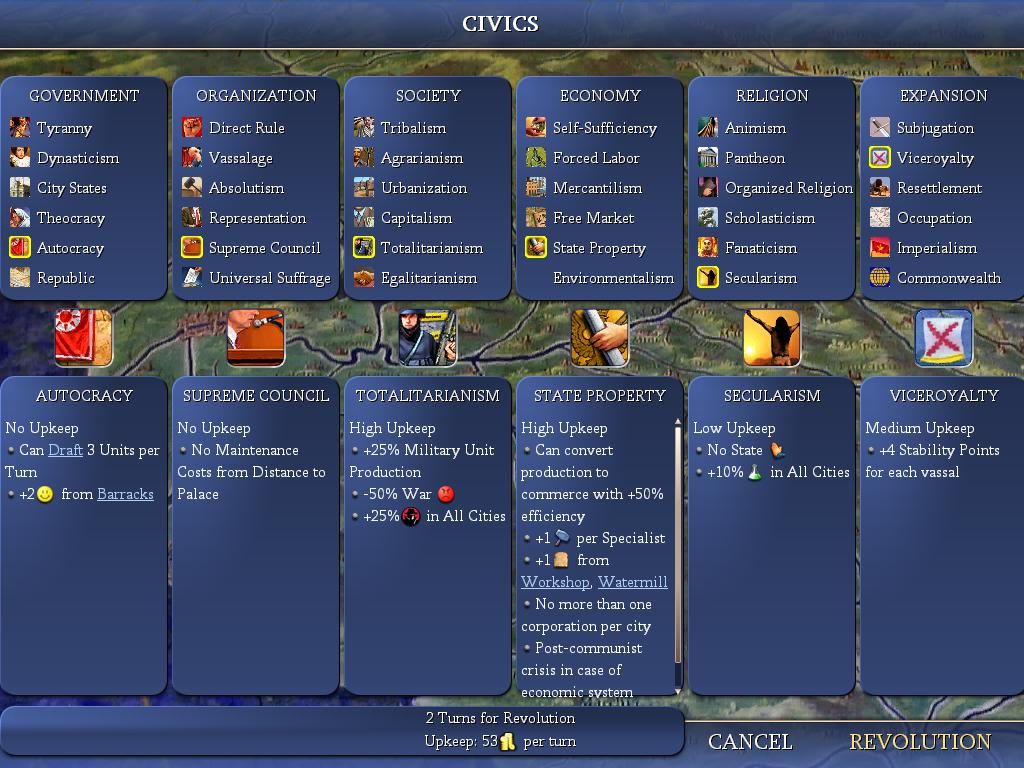
Revolution swept through the Punic Sea, filling people with nationalistic fervor.
Classical civilization was emphasized and the golden ages of Phoenician family states such as Spain, Portugal & China were constantly bombarded with images of their glory days, and propaganda spread that together, as brothers-in-arms,
their destinies were tied to that of Phoenicia and its hegemony over the world.
Inca & Viking lands were, in stark contrast, awash in historical revisionism
and made fervent to the Phoenician cause.
Revolution was in the air.
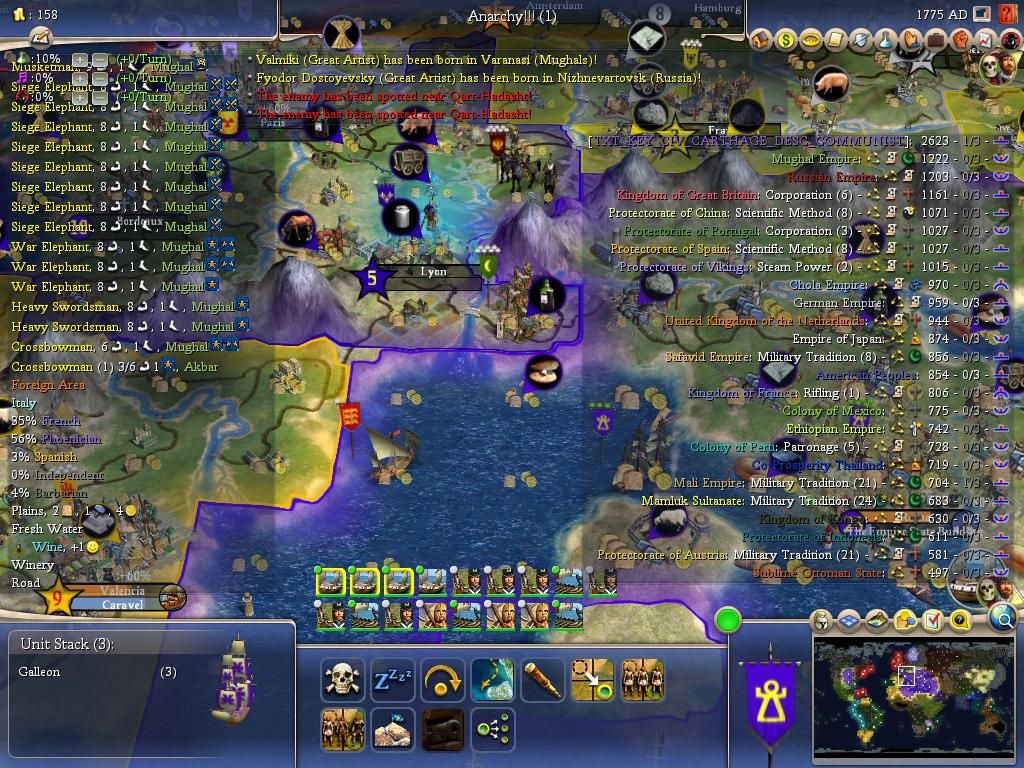
The French capital of Lyons fell under siege to a dual force of Mughal & Third Roman forces.
Although Phoenician senators had allowed the Mughal army to traverse through Phoenician lands; having their pockets lined with gold,
the Third Romans had raced them through German territory, eager to claim a city
once believed part of Rome for the glory of Caesar.
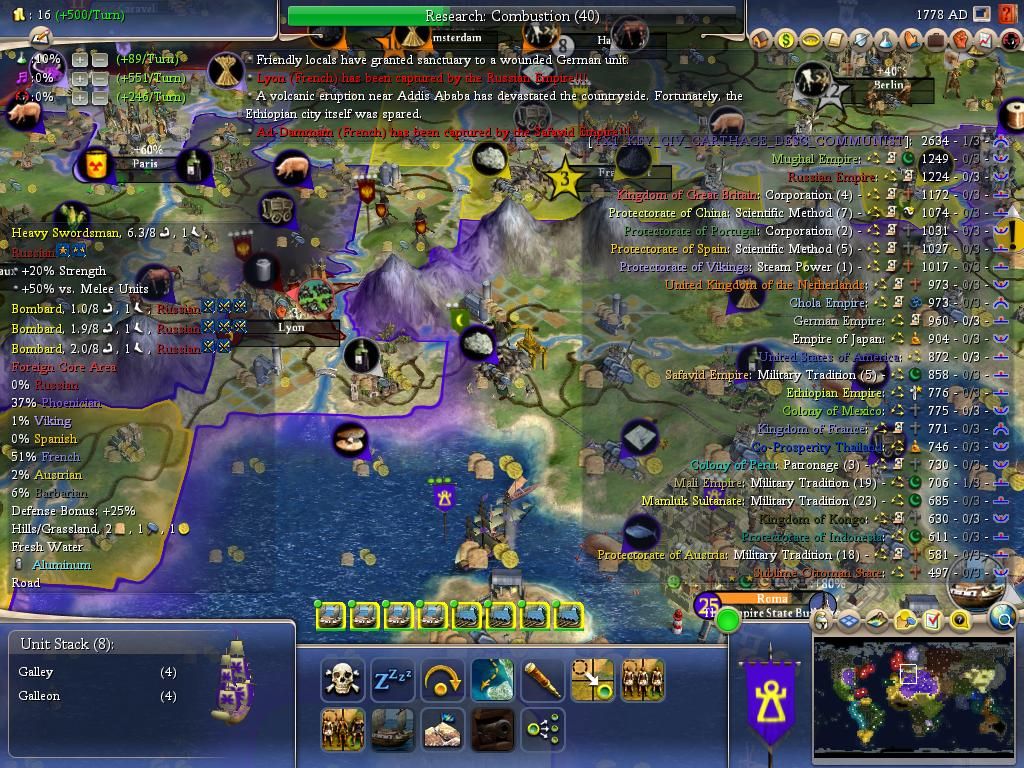
While no friend of the French, Hannibal resented Russia attempting
to build a second zone of influence to potentially attack Phoenicia from.
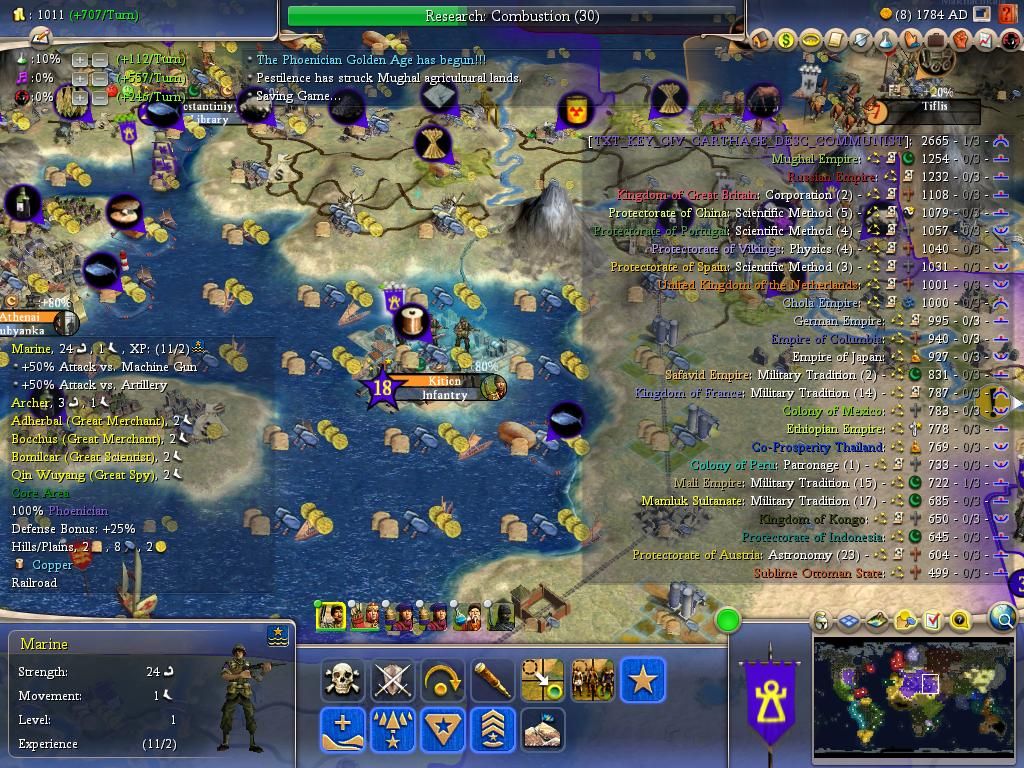
In the east, the Germans were striking at the Safavids.
It seemed like the world around the Punic Sea was alight in flame.
Truly, the conditions were perfect.
The conditions necessary for Hannibal to make his move.
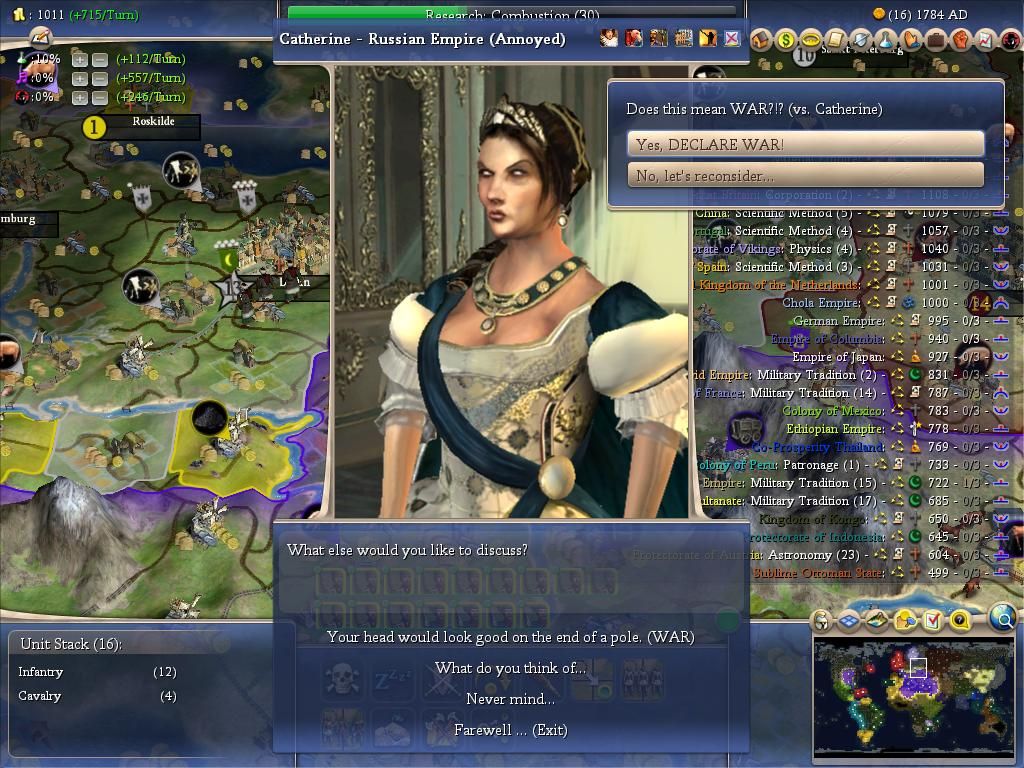
It's time to put down Caesar like the dog he is.
strijder20
Wallowing in irony
Just look at Catherine's eyes. She just can't be good.
Tomorrow's Dawn
Heroes Never Die
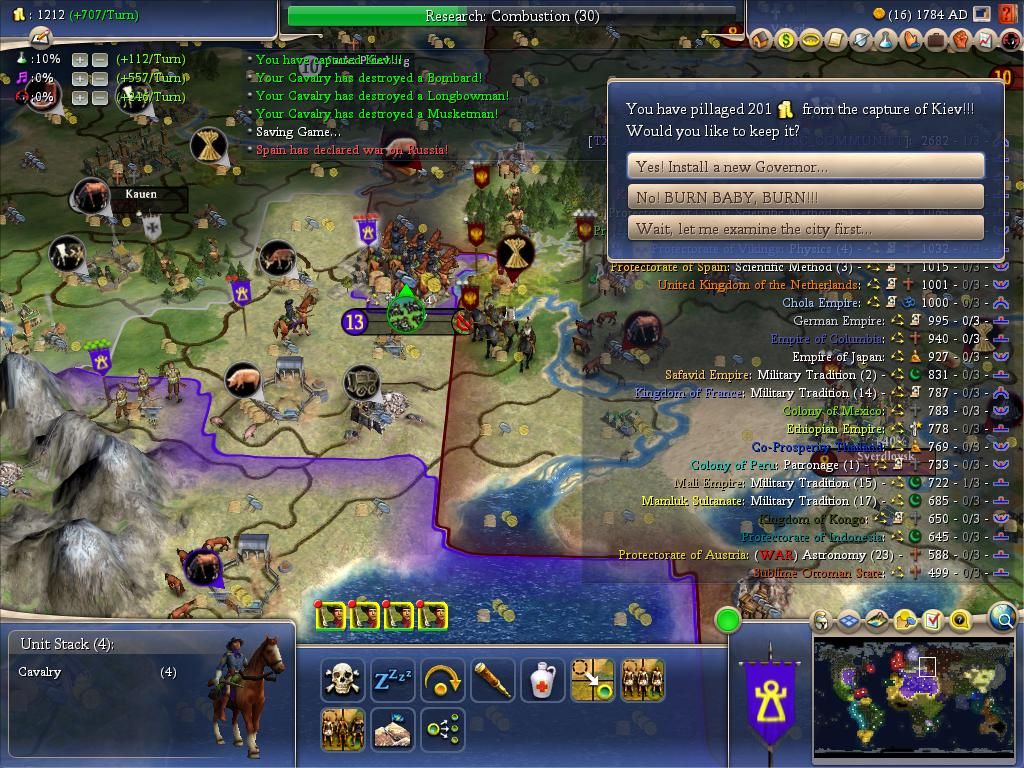
The war kicks off as Punic cavalry storms into the border city of Kiev.
Though it is deemed unwise to do so, a rare moment comes, as Hannibal personally
leads the army in the invasion against the Third Rome.
Indeed, Caesar and his wife, Catherine have sprung a deadly trap against
the Punic forward scouts; the main Russian army was parked atop a nearby hill,
waiting to strike.
Fortunately, for Hannibal, his own main army was not too far behind.
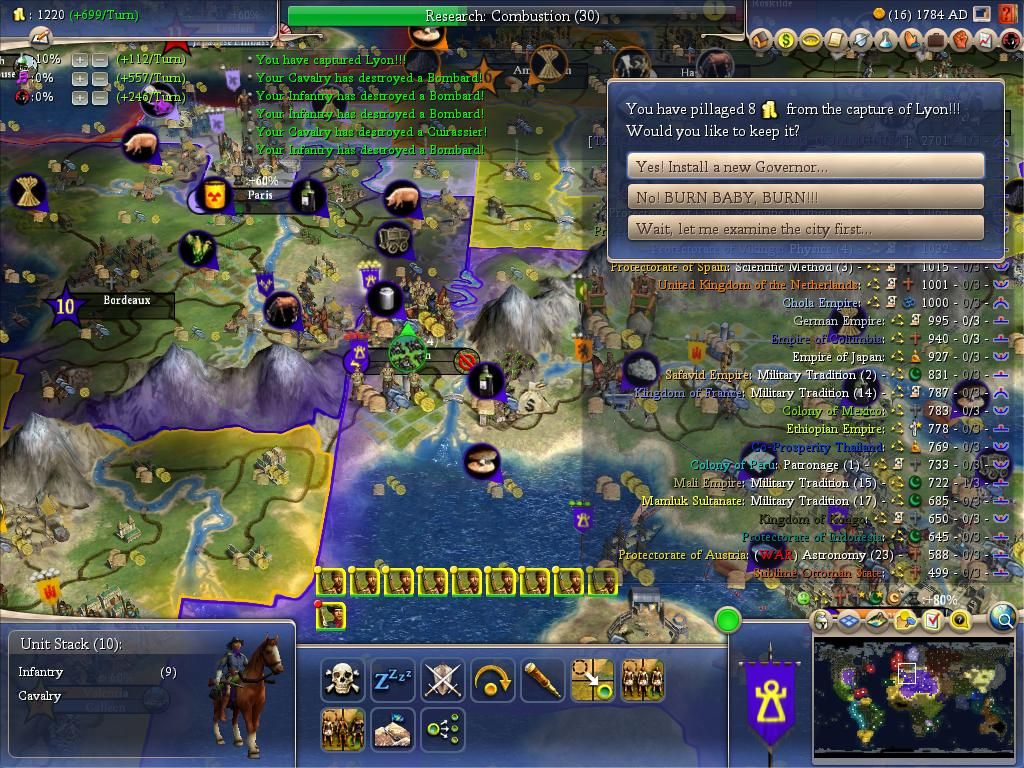
In the interim, forces in the West captured the formerly French city of Lyons,
wresting it with force from the occupying Russians.
The French government protested this and demanded that it be returned,
but they were in no position to make demands,
bogged down in a draining war against the independent Arabian shiekhdoms.
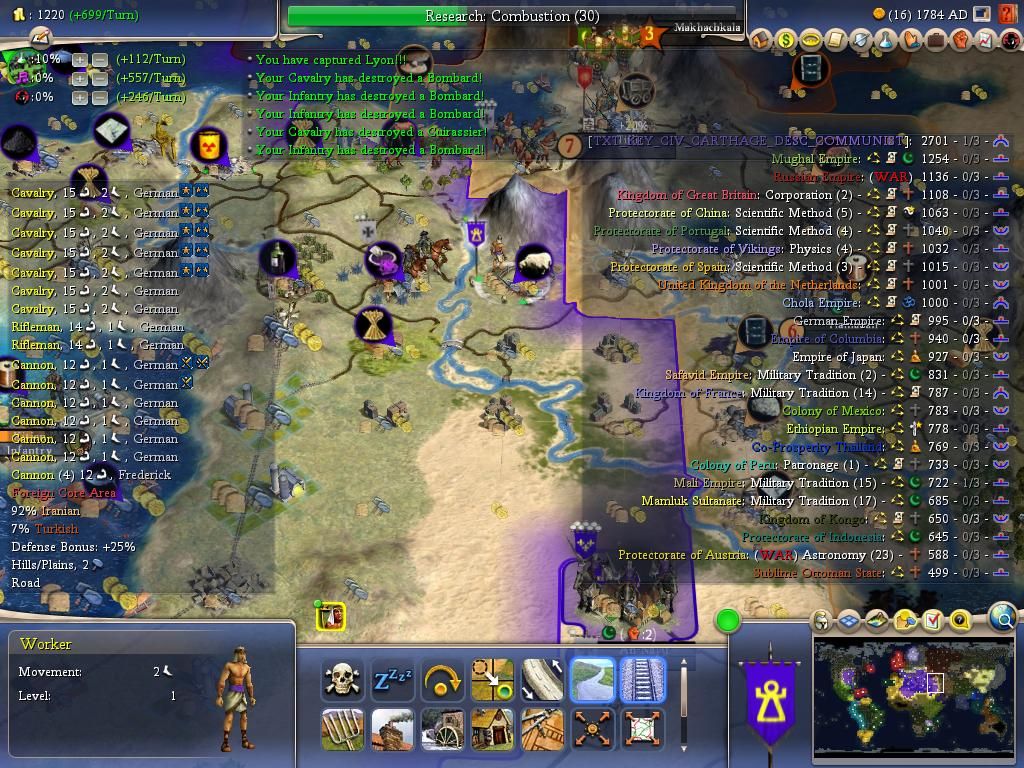
The movements of other foreign bodies engaged in their own wars did not go unnoticed.
Hannibal estimated that the Prussian campaign against the Safavids would,
at the least, be over within a few years.
He still had some time to carry out his plans then; it all weighed on the successful invasion of the Third Roman hinterland.
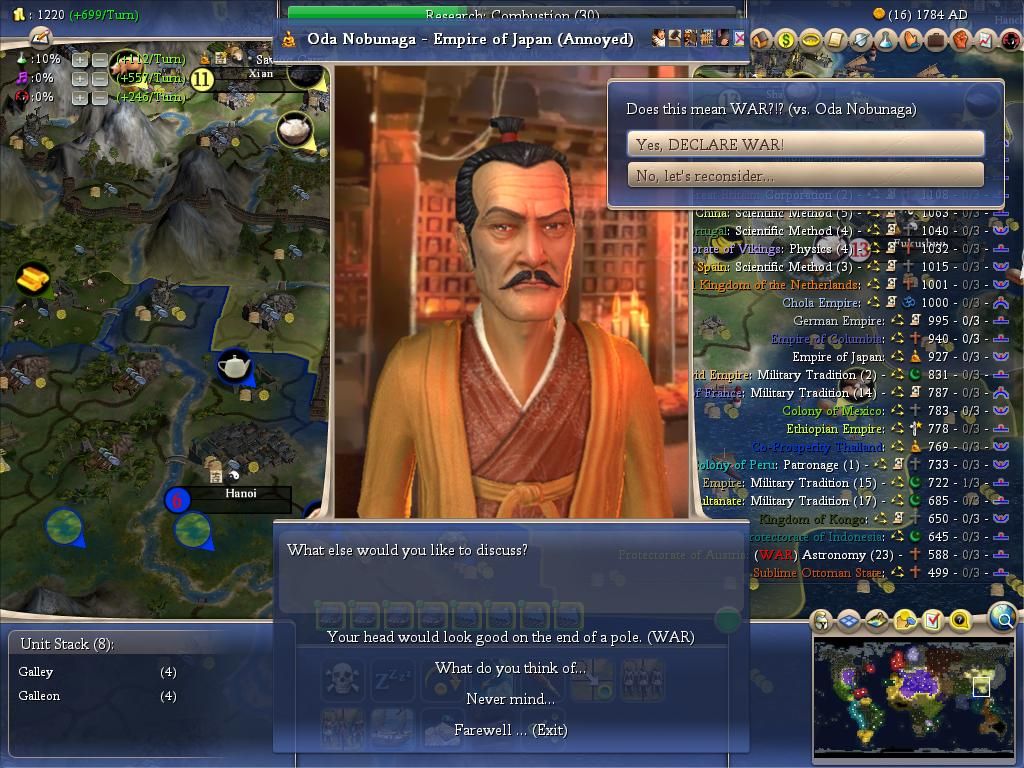
At the start of the war, only Viking and Punic forces were involved, fighting directly on the Roman Front.
The other arms of the greater nation were mostly relegated to supplying materiel and parts.
Then came the declaration of war against Japan and its puppet-state, Co-Prosperity Thailand.
Punic intelligence suggested that Japan, foremost among other states,
had been assisting the Third Rome economically and diplomatically in shoring up an anti-Phoenician coalition.
The push was supported by Hongwu and the Chinese elite, who was eager to seize back Fuzhou.
While only a token force was present in the Far East to do battle, the bulk of the fighting was to become the responsibility of the Chinese.
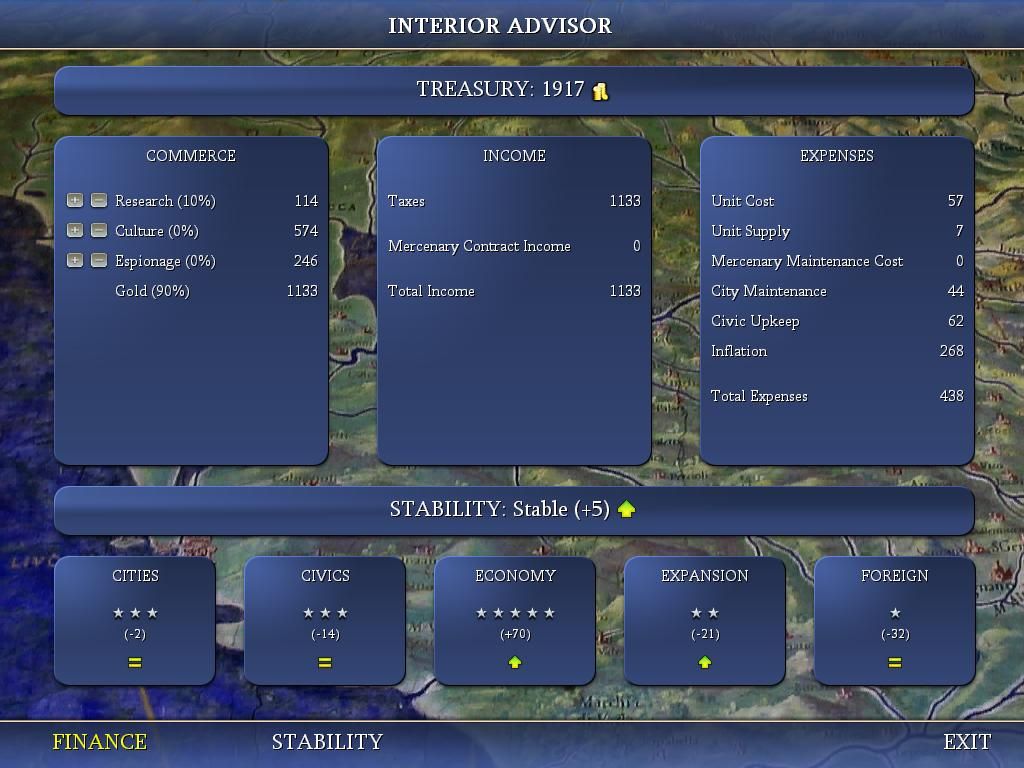
I ain't goin' collapse.
GreekAnalyzer
Back from the Dead
- Joined
- May 9, 2013
- Messages
- 1,936
Good. Relegate Caesar to the dustbin of history. Also, your new profile pic is scary. O_O
Similar threads
- Replies
- 21
- Views
- 7K
- Replies
- 314
- Views
- 32K
- Replies
- 211
- Views
- 34K


